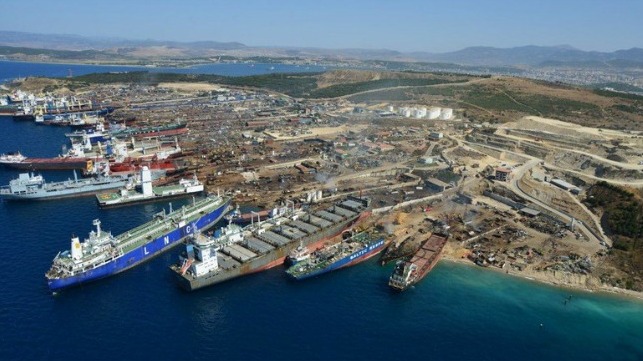
Last week, NGO Shipbreaking Platform warned of the need for enhanced safety measures in the ship recycling industry due to rising numbers of fatal accidents and injuries. With seven workers dying while dismantling vessels in Bangladesh and Turkey in less than two months, the industry must prioritize the safety of workers and the protection of the environment, according to the organization.
In Bangladesh, five workers were killed and three severely injured in seven separate accidents on the shipbreaking beaches of Chattogram. The fatalities were caused by explosions, falls from height, falling steel plates and exposure to toxic fumes.
NGO Shipbreaking Platform Project Officer Sara Rita da Costa said the series of accidents in Chattogram shows a lack of responsibility by shipping companies, as they continue to sell their end-of-life vessels to be broken under well-known dangerous conditions. It also shows the limited ability of the Bangladeshi government to regulate the industry.
“Bangladeshi authorities need to face their responsibility to protect their citizens’ rights and ensure the effective enforcement of the law. Business profits can no longer be privileged at the expense of human lives,” said da Costa.
In Turkey, two workers are reported to have lost their lives when a rope broke during dismantling operations last weekend. The accident occurred at Metas ship recycling yard, where two workers were killed in another accident less than two months ago.
“The death of now four workers at Metas ship recycling yard raises serious concerns that vital occupational safety measures have been neglected,” said Ingvild Jenssen, NGO Shipbreaking Platform’s Executive Director.
Since 2009, a total of 7,073 shipped have been beached for breaking, primarily in South Asia countries, causing 410 deaths and 320 injuries. Bangladesh, alongside India and Pakistan, remains the leading destination for end-of-life vessel sales. In 2020, nearly 90 percent of the world’s scrapped tonnage was dismantled on the beach in these three countries. Last year, at least 10 workers lost their lives when breaking apart vessels in Bangladesh alone, with another 14 severely injured.
To address longstanding concerns about work practices in South Asia, NGO Shipbreaking Platform advocates for an end to beaching, a transition to dry-dock operations, compliance with health and safety standards and proper management of hazardous wastes from end-of-life ships.
SOURCE READ THE FULL ARTICLE
https://www.maritime-executive.com/article/ngo-reports-seven-shipbreaking-fatalities-in-two-months